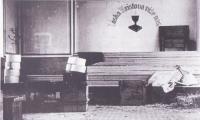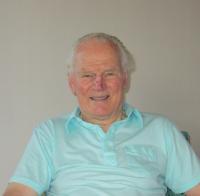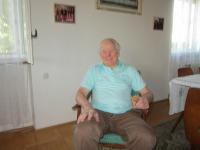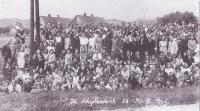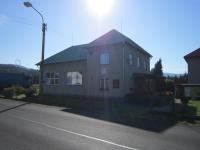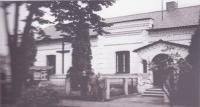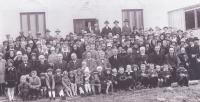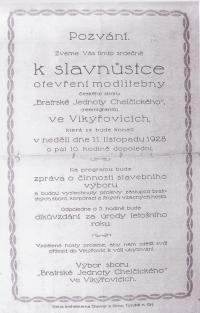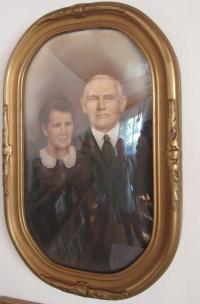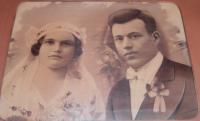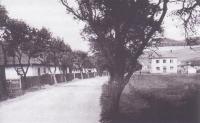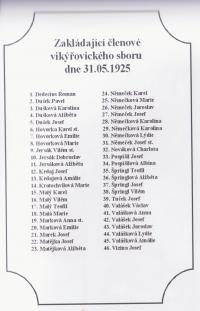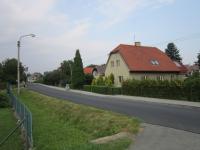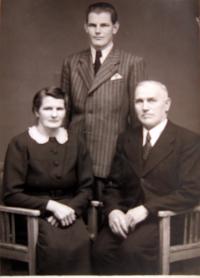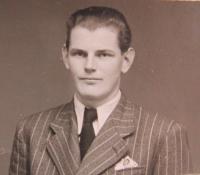Non-Baptists would come as well, as there was nothing Czech there.

Download image
Karel Jersák was born in Nowa Wola near Zelow in Poland in 1924. He is the progeny of Czech émigrés after the Battle of Bílá Hora, who settled near Zelow in the early 1800s. He is one of the many of those Czechs who converted to the Baptist Church in the 1890s. After the rise of Czechoslovakia, some of the exiles came back to the home country of their ancestors. The Jirsáks were among them, and they settled in the German community of Vikýřovice (Weikersdorf) along with other families in 1925. They built a Baptist prayer house, which became a hub for Czechs in and around the village during the First Republic. Most of the Baptist families were moved out to the inland during the war. Teofil Malý, the local preacher, perished in Auschwitz. The Jersáks lived with their relatives in Zábřeh from 1941 to the end of the war. In the communist era, the entire community was under careful scrutiny of church secretaries. Local preacher Vilém Pospíšil was arrested in February 1955 and sentenced to three and half years imprisonment in a fabricated trial, and one-third of his property was confiscated. The witness’ brother Vilém was also arrested and sentenced; he was a preacher in Kroměříž. Karel Jersák was active in the congregation even during the hard times. He was one of the state-approved laymen preachers, chairman of the congregation, and he led the Sunday school. He recalls having to report any change or visitor to the church secretary. Even though he did not face major problems in his position, living with faith under the communists was always a problem and the family experienced much humiliation imposed by the regime. Daughter Jarmila with family eventually emigrated to Canada. Karel Jersák with wife still live in Vikýřovice today and, as his entire life, he is actively involved in the life of the local Baptist congregation.
